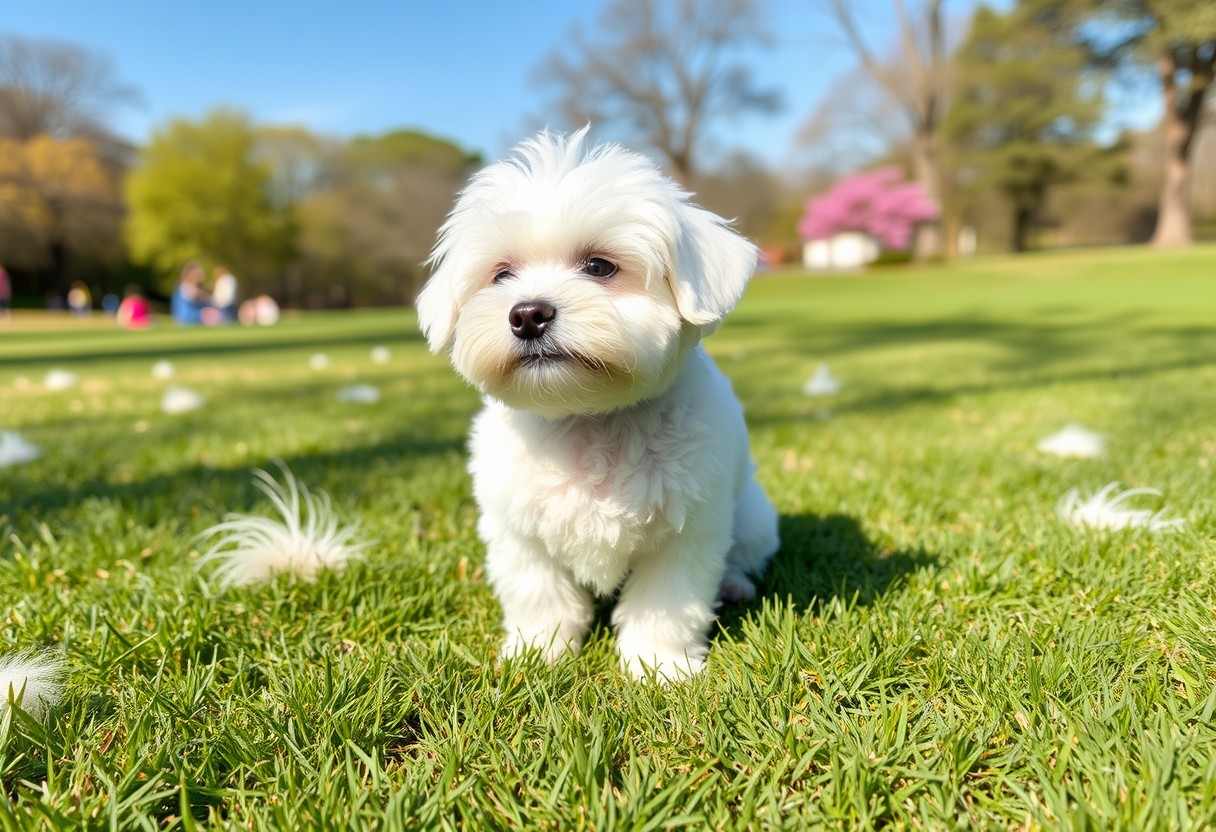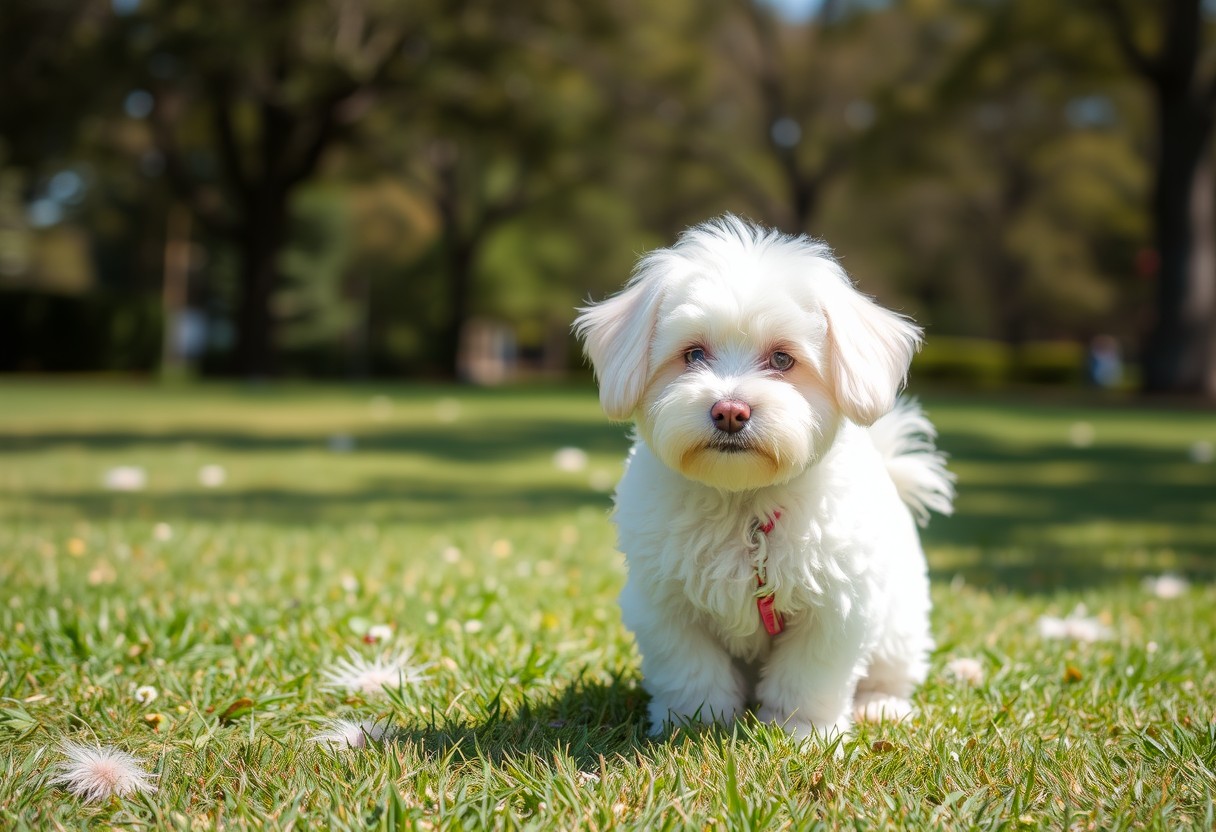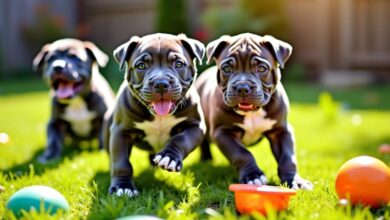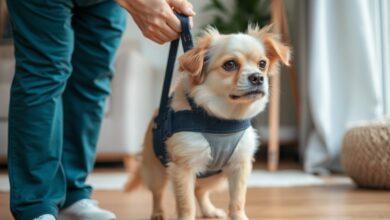Do Bichon Frise Shed? What to Expect

Over the years, you may have heard mixed opinions about whether Bichon Frise dogs shed. As a beloved companion breed known for their curly coats and playful demeanor, the question of shedding is crucial for potential owners. In this post, you’ll learn about their grooming needs, how their coat type affects shedding, and what to expect in terms of allergen management. Understanding these aspects will help you decide if a Bichon Frise is the right fit for your home and lifestyle.

Key Takeaways:
- Bichon Frise are low-shedding dogs: This breed is known for its minimal shedding, making them a suitable choice for those with allergies or who prefer less pet hair in their homes.
- Regular grooming is crucial: To maintain their coat and minimize loose hair, it’s important to commit to regular grooming sessions, including brushing and professional grooming.
- Seasonal shedding can occur: While Bichon Frise generally shed less, they may experience slight seasonal shedding, so owners should be prepared for some minor changes in hair loss throughout the year.
Understanding Bichon Frise Coat
A Bichon Frise is renowned for its adorable, fluffy coat that requires special attention. Their coat consists of a double layer: a soft, insulating undercoat and a curly outer coat that can trap dust and allergens. This unique structure not only enhances their charming appearance but also impacts their shedding and grooming needs, making it imperative for you to understand how to care for it properly.
Coat Type and Characteristics
Coat type significantly influences your Bichon Frise’s grooming routine. The curly, hypoallergenic coat helps to minimize shedding, making them a popular choice for allergy sufferers. However, their coat can become matte and tangled if not maintained, leading to discomfort for your dog.
Importance of Grooming
Any Bichon Frise requires regular grooming to keep their coat healthy and free of mats. Without proper grooming, their curls can become severely tangled and matted, which can cause skin issues or discomfort. It’s crucial for you to establish a grooming routine that includes regular brushing and professional grooming sessions.
Characteristics of the Bichon Frise’s coat make grooming an integral part of responsible pet ownership. Regular grooming prevents painful matting and promotes a healthy skin environment, reducing the risk of infections. Additionally, maintaining your dog’s coat helps you monitor for any skin issues or irritations that may arise. Investing time in grooming not only enhances your Bichon’s appearance but also strengthens your bond with them, ensuring they remain happy and comfortable.

Shedding in Bichon Frise
Some dog owners are often concerned about shedding, especially when considering a Bichon Frise. These delightful pups are known for their hypoallergenic coat, which minimizes dander and makes them a popular choice for allergy sufferers. While they don’t shed much fur, it’s imperative to understand that regular grooming and care are still necessary to maintain their soft, curly coat.
Do They Shed?
The Bichon Frise is not a heavy shedder. Their unique coat structure means that while they do lose some hair, it often becomes trapped in their curly fur rather than falling out freely. This characteristic helps keep your home cleaner but still requires you to maintain a regular grooming routine to manage any potential matting.
Shedding Seasons
On the whole, Bichon Frises experience minimal seasonal shedding compared to other breeds. However, during certain times of the year, especially when the weather transitions, you might notice a slight increase in shedding. Pay close attention to their grooming needs during these periods to keep their coat healthy and free from tangles.
Shedding is generally mild in Bichon Frises, but seasonal changes can influence it. Most of the shedding occurs in the spring and fall, as dogs tend to adjust their coats with the changing temperatures. During these times, you should increase your grooming sessions to manage any loose hairs and prevent matting. By staying proactive in your grooming routine, you can enjoy the companionship of your Bichon Frise without the hassle of excessive hair in your home.

Factors Influencing Shedding
Once again, the amount of shedding in your Bichon Frise can vary based on several factors. These can include:
- Age of your dog
- Health status
- Environmental conditions
- Diet and nutrition
- Seasonal changes
This multifaceted approach to understanding shedding can help you manage it effectively.
Age and Health of the Dog
For your Bichon Frise, both age and overall health play crucial roles in determining how much they shed. Puppies tend to shed less, while older dogs may experience changes in their coat due to age-related health issues. Additionally, if your dog has any underlying health conditions, this could impact their shedding patterns. Regular veterinary check-ups can ensure that your dog remains in optimal health.
Environmental Conditions
Conditions in your dog’s environment can significantly affect their shedding. Factors such as temperature, humidity, and overall living conditions can impact the condition of your Bichon Frise’s coat.
For instance, during hot summer months, your dog may shed more to regulate their body temperature, while hair loss may occur in winter due to dry indoor heating. Additionally, if your dog is frequently stressed due to loud noises or changing environments, it can lead to increased shedding. Managing these environmental factors is imperative for keeping shedding at an acceptable level.
Grooming Tips for Reducing Shedding
Your Bichon Frise can be a low-shedding breed if you commit to regular grooming practices. Here are a few tips to help reduce shedding:
- Schedule regular grooming sessions.
- Invest in a high-quality brush.
- Use a leave-in conditioner for a healthier coat.
- Keep your pet’s coat trimmed.
The right grooming routine can significantly minimize the amount of hair you find around your home.
Regular Brushing
An effective way to control shedding in your Bichon Frise is to establish a routine of regular brushing. Aim to brush your dog at least two to three times a week to remove loose hair and prevent matting. Not only will this practice keep shedding under control, but it will also promote a healthy coat and skin. Enjoy this bonding time, and use a brush designed for double-coated breeds to maximize results.
Bathing and Products
An important aspect of grooming is regular bathing and using the right grooming products. Aim to bathe your Bichon Frise every four to six weeks to keep their coat clean and healthy. Use a gentle, dog-specific shampoo to avoid skin irritation and a conditioner that adds moisture. To ensure optimal results, consider using a de-shedding tool during bath time, which can help remove undercoat fur effectively.
It’s necessary to keep in mind that not all bathing products are suitable for your Bichon Frise. Avoid using human shampoos, as they can disrupt your dog’s natural pH balance, leading to skin issues. Opt for hypoallergenic or moisturizing shampoos specifically designed for dogs to keep their skin and coat healthy. Additionally, use a high-quality platform to support their coat while drying, providing proper ventilation and reducing potential matting.
Managing Allergies and Shedding
Keep in mind that while Bichon Frise dogs are often considered low-shedding, they can still trigger allergies. Regular grooming, vacuuming, and creating a clean environment can help minimize allergens in your home. By understanding how to manage allergens, you can enjoy the companionship of your Bichon Frise while reducing the impact on your health.
Hypoallergenic Considerations
Any dog can potentially cause allergies, but Bichon Frise are often labeled as hypoallergenic due to their minimal shedding. However, it’s important to note that individual reactions may vary. Consult with an allergist if you’re concerned about your allergies before bringing a Bichon into your home.
Cleaning and Maintenance
The key to maintaining a clean space with your Bichon Frise lies in your commitment to regular cleaning. Make sure you groom your dog frequently to minimize shedding and decrease allergens in your home.
Hypoallergenic pets like the Bichon Frise produce less dander, but you should still remain vigilant with *cleaning routines*. Consider using a vacuum with a HEPA filter to trap allergens effectively. In addition, wash your dog’s bedding regularly and keep your living spaces uncluttered. Adopting these measures will help protect your health and ensure a cleaner environment, making life more enjoyable for you and your furry friend.
Alternatives to Bichon Frise
To find the perfect dog for your lifestyle, it’s important to consider breeds that align with your preferences in temperament, grooming needs, and activity level. If you’re looking for a furry companion without the shedding that comes with traditional breeds, there are several alternatives you may want to explore.
Similar Breeds
Breeds like the Maltese, Toy Poodle, and Coton de Tulear share similar traits with the Bichon Frise, including their affectionate nature and small size. These breeds often have friendly dispositions and are well-suited for families, making them great companions for a variety of households.
Non-Shedding Options
Breeds recognized as hypoallergenic, such as the Shih Tzu, Italian Greyhound, and Yorkshire Terrier, can be excellent alternatives if you’re searching for a dog that won’t contribute to allergies or excessive shedding. These breeds typically require regular grooming, so keeping their coats healthy and tidy is imperative.
Alternatives can also include breeds like the Bedlington Terrier and the Basenji, which are known for their minimal shedding. When researching non-shedding options, remember that each dog’s grooming needs will vary, and regular brushing can help maintain their coat while reducing allergens. Additionally, if you suffer from severe allergies, it’s wise to spend time with a dog before bringing them home to ensure they won’t trigger your sensitivities.
Summing up
The Bichon Frise is a low-shedding breed, making it an excellent choice if you’re concerned about pet hair in your home. However, you should still expect some hair loss, especially during grooming and seasonal changes. Regular grooming and maintenance of their coat will help minimize shedding and keep your furry friend looking and feeling great. For more in-depth information on caring for your Bichon Frise, visit this link on Bichon Frise: Dog Breed Information, Life Span & Facts.
FAQ
Q: Do Bichon Frise shed, and how much hair should I expect around my home?
A: Bichon Frise dogs are considered a low-shedding breed. They have a curly coat that traps loose hair and dander, significantly reducing the amount of hair that falls onto floors and furniture. While some hair loss is normal, especially during seasonal changes, you can generally expect minimal shedding compared to breeds with a straight coat. Regular grooming and baths can help manage any loose hair and maintain the coat’s health.
Q: What grooming routine is recommended for a Bichon Frise to minimize shedding?
A: To minimize shedding in a Bichon Frise, a consistent grooming routine is imperative. It is recommended to brush your Bichon’s coat at least 2-3 times a week to remove loose hair and prevent matting. Monthly professional grooming is also advisable to maintain the coat’s condition and perform any needed clipping. Additionally, regular baths using a quality dog shampoo will keep the skin healthy and minimize dander, contributing to less hair around the house.
Q: Are there any health concerns that can affect the shedding of a Bichon Frise?
A: Yes, several health issues can affect a Bichon Frise’s shedding. Conditions like allergies (to food or environment), skin infections, or hormonal imbalances can lead to increased shedding. If you notice excessive shedding or bald spots, it’s imperative to consult a veterinarian to rule out any underlying health issues. Regular veterinary check-ups can help maintain your Bichon Frise’s overall health and ensure that their coat remains in good condition.





